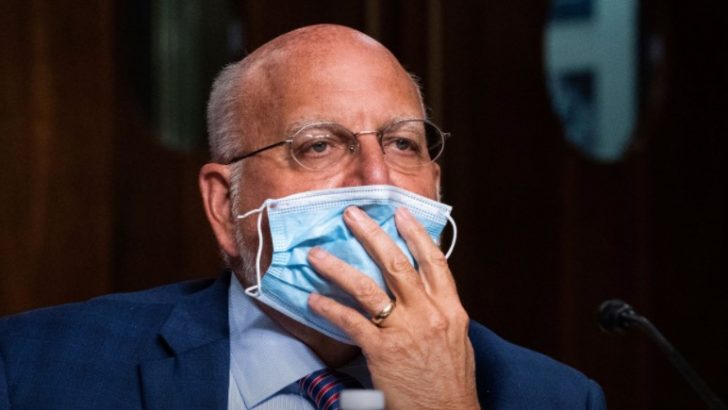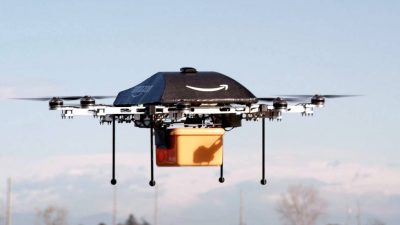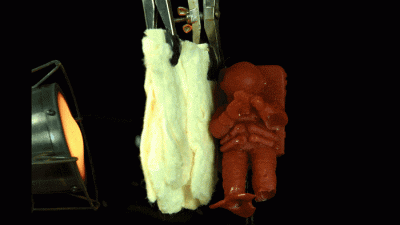CDC Director Robert Redfield says face masks may provide more protection than coronavirus vaccine

- A potential coronavirus vaccine will likely be available in limited quantities by the end of this year, but it may only be about 70% effective, CDC Director Robert Redfield said.
- A 50% effective vaccine would be roughly on par with those for influenza but below the effectiveness of one dose of a measles vaccination, which is about 93% effective, according to the CDC.
- The CDC and the WHO now suggest people wear face coverings to prevent the spread of the coronavirus, which is spread through respiratory droplets when a person coughs, sneezes or talks.
Face coverings are “the most powerful public health tool” the nation has against the coronavirus and might even provide better protection against it than a vaccine, the head of the U.S. Centers for Disease Control and Prevention told lawmakers Wednesday.
“We have clear scientific evidence they work, and they are our best defense,” CDC Director Dr. Robert Redfield said. “I might even go so far as to say that this face mask is more guaranteed to protect me against Covid than when I take a Covid vaccine.”
Redfield told the U.S. Senate Appropriations Subcommittee on Labor, Health and Human Services, Education, and Related Agencies that a potential coronavirus vaccine, which will likely be available in limited quantities by the end of this year, may only have an immunogenicity of 70%.
Immunogenicity is the ability of a vaccine to build an immune response to the virus. Other top health experts, including White House coronavirus advisor Dr. Anthony Fauci, have said the likelihood of producing a highly effective Covid-19 vaccine — one that provides 98% or more guaranteed protection — is slim.
Fauci, director of the National Institute of Allergy and Infectious Diseases, said in August that scientists are hoping for a vaccine that’s at least 75% effective. The Food and Drug Administration said it would authorize a coronavirus vaccine so long as it is safe and at least 50% effective.
A 50% effective vaccine would be roughly on par with those for influenza but below the effectiveness of one dose of a measles vaccination, which is about 93% effective, according to the CDC.
“If I don’t get an immune response, the vaccine’s not going to protect me. This face mask will,” Redfield told lawmakers while holding up a blue surgical face mask. He urged Americans, particularly those between 18 and 25 years old, to continue wearing face coverings, reiterating they could help bring the pandemic under control in a matter of weeks if people wore them universally.
Earlier on Wednesday, the CDC outlined a sweeping plan to make vaccines for Covid-19 free to all Americans. Even then, Redfield predicted that it will take “six to nine” months to get every American vaccinated, saying the U.S. should have enough doses to return to “regular life” by the third quarter of next year.
The CDC and the World Health Organization now suggest people wear face coverings to prevent the spread of the coronavirus, which is spread through respiratory droplets when a person coughs, sneezes or talks. The CDC says face masks that cover the mouth and nose are “particularly important” when people can’t maintain a 6-foot distance from one another.
Adm. Brett Giroir, an assistant secretary for health at the U.S. Department of Health and Human Services, told the lawmakers that wearing a face covering “is one of the most important things we can do to prevent spread.” That’s because people who are infected and don’t show symptoms could still be spreading the virus.
The comments came after Sen. Jack Reed, D-R.I., pressed the health officials on President Donald Trump’s reluctance to wear a face covering while attending events. Trump made the announcement in early April that the CDC had changed its guidance in support of wearing a face covering in settings where social distancing isn’t feasible, but he said, “I don’t think I’m going to be doing it.” In July, after months of reluctance, the president said wearing a face covering is “patriotic.”
At a White House press briefing later on Wednesday, the president said Redfield might have “misunderstood” the question by lawmakers, adding that masks are not as important as the vaccine. Trump said “perhaps” face masks help.
“I hope that the vaccine’s going to be a lot more beneficial than the masks,” Trump told reporters. “As far as the mask is concerned, he made a mistake.”
The CDC walked back some of Redfield’s testimony after Trump’s criticism, clarifying his stance on face masks.
“I 100% believe in the importance of vaccines and the importance in particular of a COVID-19 vaccine. A COVID-19 vaccine is the thing that will get Americans back to normal everyday life,” Redfield said in a statement emailed to CNBC. “The best defense we currently have against this virus are the important mitigation efforts of wearing a mask, washing your hands, social distancing and being careful about crowds.”
Dr. Robert Kadlec, assistant secretary for preparedness and response at HHS, told Reed and lawmakers on the panel that the president “can exercise his rights to do what he pleases as we see other Americans doing that.”
Source: Noah Higgins-Dunn / CNBC






